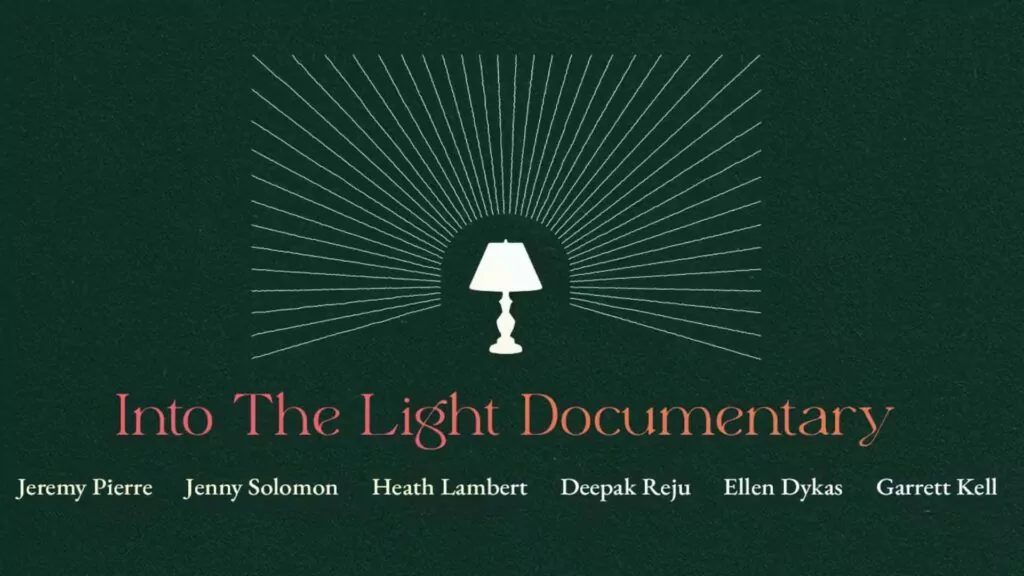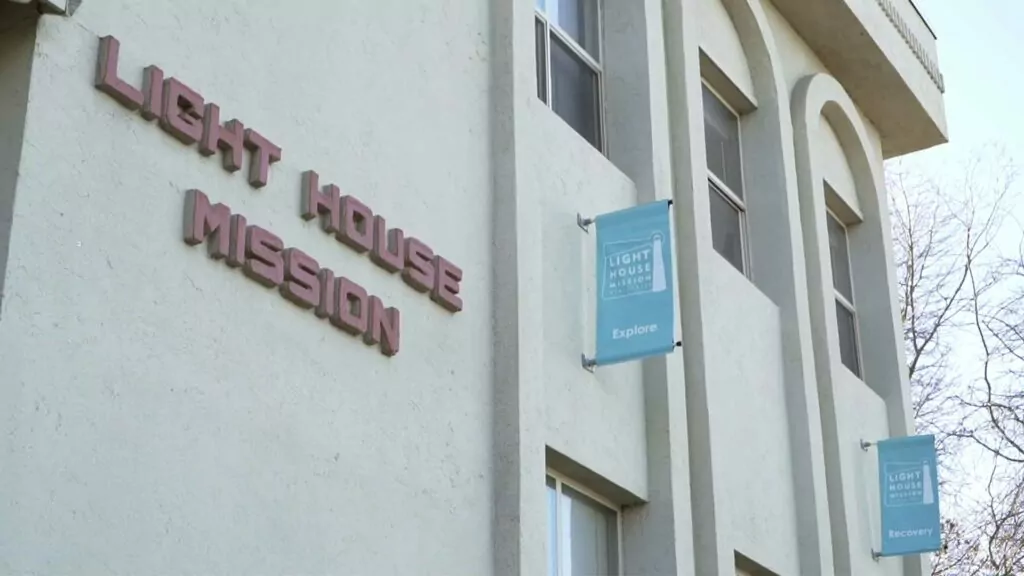ICR’s impactful half century
A look at the Institute for Creation Research (ICR), its work, and its resources
*****
See Creation.com's review here.
The Institute for Creation Research (ICR) in Dallas, Texas, was established in 1970 and has developed into an outstanding center of scientific research where well-qualified scientists probe and seek to understand the mysteries of God’s creation (www.icr.org). Their impressive Discovery Center, which opened in 2019, highlights how the sixteenth-century Reformation set the stage for the birth of modern science and takes the visitor on an informative journey that includes key biblical events which are relevant for science, stunning displays, and some of the results of their research. Regular shows in the planetarium offer awesome displays of the wonders of God’s creation.
This past March, my wife and I had the opportunity to visit ICR. It all started with an email from a staff member of ICR, who had read my book, In the Beginning: Listening to Genesis 1 and 2 (2021, 400 pages). After ongoing contact by email and even in person during a conference in Denver, we ended up visiting the Institute. It was a memorable experience to tour the facilities and get updates from the scientists working there on their research.
The purpose of this article is to introduce some of the work done in ICR since it is committed to honoring the Bible as God’s infallible Word, also when doing scientific research. What the Bible states to be true is accepted as reliable information also for a scientist. This laudable approach has enormous consequences since the scientists at ICR reject scientific theories that contradict the clear teachings of Scripture, such as evolution. Much of their research results in showing that the actual facts of science are more readily in agreement with the biblical account of creation and subsequent events like the world-wide flood in the days of Noah than with evolutionary theories of origin spanning billions of years. Their publications, some of which I will highlight in this article, are all very accessible and lavishly illustrated although they are also full of in-depth science.
Biological issues
In 2005, Dr. Mary Schweitzer announced one of greatest paleontological discoveries in history, the finding of soft pliable organic tissue including blood vessels in a dinosaur bone. This discovery, followed by more of the same, has called into question the dating of millions of years usually assigned to such fossils since such tissue cannot last that long. ICR scientist Brian Thomas did his Ph.D. thesis in paleobiochemistry on this issue at the University of Liverpool. It has been published by ICR as Ancient and Fossil Bone Collagen Remnants (2019, 137 pages). His conclusions include the following:
“The pervasive presence of proteins in fossils combined with their short half-lives present a poor fit with deep time. Last, the prevalence of radiocarbon in fossils combined with its even shorter half-life would reasonably follow from a biblical origins scenario. If the Noachic Flood deposited those fossils only thousands of years ago, then it is no wonder they still have proteins including bone collagen and levels of radiocarbon well above AMS detection thresholds.”
Although Brian Thomas was raised as an evolutionist, his research made him question mainline evolutionary science since it showed evidence for evolution wanting, but much support for biblical creation.
A popular presentation about the unfossilized tissue focussing on the hard evidence and its implications for evolutionary thinking is a documentary hosted by David Rives, Echoes of the Jurassic: Discoveries of Dinosaur Soft Tissue (2012, 95 minutes) published by the Creation Research Society and available through ICR. You can find the trailer for it below.
A common argument for evolution and common ancestry is that human beings and chimps are said to have 98% similar DNA. However, when more accurate comparisons are made, the similarity of DNA is only 85%, not enough for humans and chimps to have a common origin. An ape is not a human being and a human being is not an ape. ICR Geneticist Dr. Jeffrey P. Tomkins has published his research on this topic in his book Chimps and Humans: A Geneticist Discovers DNA Evidence That Challenges Evolution (2021, 192 pages). There he shares that his findings, along with those of:
“a wide variety of research reports have clearly shown a pattern of incredible irreducible genetic complexity that appears suddenly and fully integrated in humans but is distinctively different from chimpanzees.”
Tomkins also wrote The Design and Complexity of the Cell (2012, 132 pages), intending it as a scientific resource “to address the various evolutionary arguments that have dominated and shaped the academic environment.” He wanted to help especially college students, to counter the evolutionary arguments that will come their way.
As he notes, science is not a morally neutral discipline, and will always look at the data through an interpretative lens. That’s why ICR is currently doing research on blind cave fish, which have long been cited as an example of Darwinian evolution. These fish, otherwise identical to their sighted cousins living outside in the light, are said to have lost their sight in a random act of adaptive evolution – a mutation caused a fish to lose its eyes, and because that made it better suited for the dark cave system, natural selection eventually led to the “fitter” blind fish taking over.
But what if we viewed this through a lens that gives God His brilliant due? ICR researchers are proposing it wasn’t so random after all, but that God has created these fish with the ability to adapt to completely different environments, namely, a dark cave and normal day-lit water. As Tomkins and his co-authors write in their article “Catching the Vision” (Creation Research Society Quarterly vol. 58, 2022):
“These rapid, repeatable, and complex organism-wide system adaptations make little sense in the context of Darwinian evolution involving mutation and natural selection.”
Earth history
Did apes walk on the face of the earth before humans? Evolution holds this to be so. However, in an elucidating video, Adam or Apes (2022, 36 minutes), Dr. Brian Thomas clearly showed that there is no basis for this in scientific fact (see the trailer below).
He demonstrated that the designation of certain fossils as "transitional," indicating a development from ape to human, is completely without any scientific basis, and that many mainstream scientists agree with this evaluation. It is essentially the result of wishful evolutionary thinking since the analysis of these fossils is deeply flawed by, for example, supplying bones and features that were not actually found, but were added according to scientists' evolutionary presuppositions.
Dinosaurs!
What about dinosaurs? How do they fit into biblical history? Dinosaur fossils testify of their existence. Only catastrophic conditions could have killed these powerful huge creatures and buried and fossilized them along with all sorts of other creatures. The world-wide flood in Noah’s days provided the conditions for such fossilisation. The ark likely held young dinosaurs and these eventually matured and multiplied. They were known, for example, as dragons. Pictures of dinosaurs resembling the fossil remains have survived and testify to their existence. Eventually they became extinct. All this and more (including soft tissue in dinosaurs) is explained in a video presentation by Brian Thomas, Discovering Dinosaurs (2018, 50 minutes), a version of which you can watch here.
Speaking of the intriguing subject of dinosaurs, ICR geologist Timothy Clarey has written an in-depth scientific work, Dinosaurs: Marvels of God’s Design (2015, 192 pages), to explain these creatures within a biblical context as part of God’s creation. All sorts of issues are dealt with such as what the fossils tell us, why dinosaurs went extinct, and dinosaur behavior and more using the latest up-to-date research.
The Flood
The notion of a world-wide flood is regularly dismissed as a biblical myth. It never happened according to evolutionary thinking. Dr. Timothy Clarey has, however, shown in his book Carved in Stone: Geological Evidence for the Worldwide Flood (2020, 496 pages) that the geological evidence for such an event is compelling.
Clarey has wide experience as an exploration geologist and has access to an enormous amount of data on geological core samples from around the world. Sedimentary (water-deposited) rocks cover 75% of the earth’s land surface and contain fossils of marine and land creatures. So far Clarey has compiled data from three continents (North America, South America, and Africa). The “megasequences” of these deposits on each continent show the same general pattern. Clarey notes that:
“this is what makes these data so compelling. It is not just one continent that shows this pattern but three, and three that show it simultaneously. This is the strongest evidence I have ever witnessed in my 35 years as a geologist that indicates a global flood has occurred. How can anyone look at these data, these maps, and not realize it is showing the exact same pattern and timing of global flooding? This is truly compelling evidence of worldwide activity.”
These three continents studied comprise about half the earth’s landmass. So the evidence is compelling for a global flood that occurred about 4,500 years ago. Clarey is continuing his studies on land not yet researched.
The issue of climate change
One of the hottest topics of our time is the issue of climate change. The meticulous scientific study of ICR's Dr. Jake Hebert, The Ice Age and Climate Change (2021, 300 pages), is therefore most welcome to bring clear scientific thinking to this controversial subject. A refreshing aspect of this work is the fact that Hebert integrates the biblical evidence for real climate change in the case of the Genesis flood and draws out the consequences for today’s discussion. It was God’s judgment that brought about the flood and the resulting change of climate. The cataclysmic events of the flood plausibly triggered the Ice Age to which the fossils of tropical plants in, for example, the Arctic bear witness. No longer would there be a temperate climate worldwide. But God assured Noah and all his descendants that there would be stability from here on in the sense that seasons would follow each other in due order (Gen. 8:22).
If such a catastrophic, never-to-be-repeated event was required to bring about such a dramatic climate change like the Ice Age, Hebert concluded that “we do not need to worry that noncatastrophic causes such as relatively slow increases in atmospheric carbon dioxide will result in a future climate catastrophe.” This conclusion is in part based on the fact that unbiased scientific evidence indicates that the earth’s climate is stable and self-regulating. The real issue in the debate on climate change is climate sensitivity. Climate change alarmists are convinced that our climate system is very sensitive to changes and that little is needed to effect catastrophic change, a thinking which Hebert challenges and convincingly refutes using scientific evidence and in some cases exposing fraudulent data.
Since the earth’s climate is stable, it self-adjusts to prevent out-of-control warming. Hebert strongly suspects that “global warming is not occurring now. This is partly because of the well-known warming pause that has been occurring for the last 20 years or so. But even if warming is occurring right now, it will not continue indefinitely, and it is not a reason to panic.” Draconian measures are not needed to forestall a climate catastrophe.
The marvel of the human body
Dr. Randy J. Guliuzza is a retired flight surgeon as well as a professional engineer. With these qualifications he is well equipped to appreciate the biological engineering of the human body and its design features as well as the body’s incredible interconnecting systems that enable us to function as humans. He wrote a popular-level book, Made in His Image: Examining the Complexities of the Human Body (2009, 63 pages). In it he unwraps the astounding marvel of God’s design which enables the body to move, have stable temperatures, and resist microscopic invaders with an elaborate immune system. Guliuzza also explains the amazing properties of blood that help to make life possible in a mind-boggling way given the millions of chemical reactions that take place every second. Among other topics dealt with are the marvels of human reproduction, gestation, and birth which leaves one in awe of God’s handiwork and can only invoke praise to the Creator.
A DVD set by the same name, Made in His Image (2015, 88 minutes) focusses on the miracle of birth, the marvel of eyes, the uniqueness of human hands, and the beauty of human motion. An accompanying lavishly illustrated viewer guide with thought provoking questions is very helpful in highlighting and reinforcing key information from the DVD (see the trailer below).
In conclusion
There is no such thing as neutral thinking or research. Everyone is influenced by underlying assumptions and worldviews through which one views and seeks to understand reality. Also, scientific fields of endeavor probing the earth’s past history and using computer models to project into the future are not immune to underlying presuppositions. Whether one, for instance, uses an evolutionary lens through which to interpret scientific data or a biblical perspective can make all the difference.
It is a great blessing, then, when Christian scientists publish their work and counter unsubstantiated claims by mainstream science that deny biblical truth and also challenge, for example, the alarmist propaganda surrounding the issue of climate change.
Dr. Cornelis Van Dam is the Professor Emeritus of Old Testament at the Canadian Reformed Theological Seminary, and is the author of several books including “In the Beginning: Listening to Genesis 1 and 2.” Canadians may find it easier getting the books listed here from creationist organizations north of the border like CreationBC.org and Create.AB.ca....































